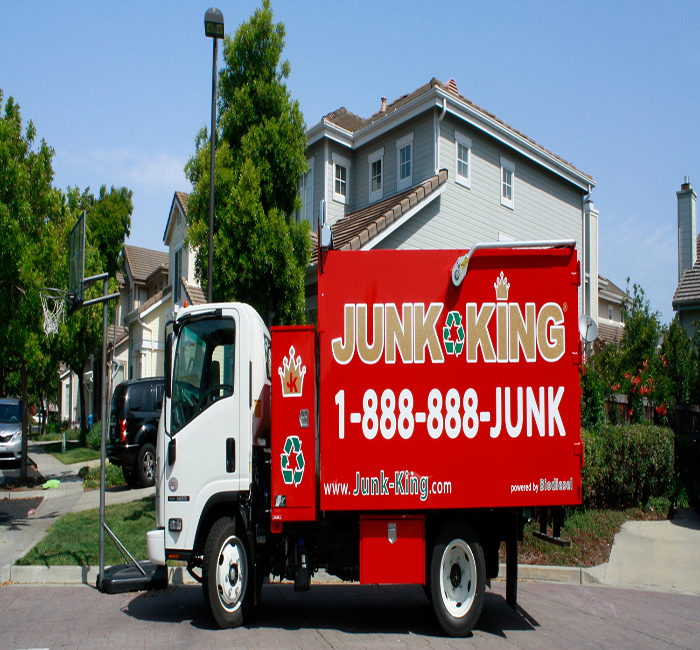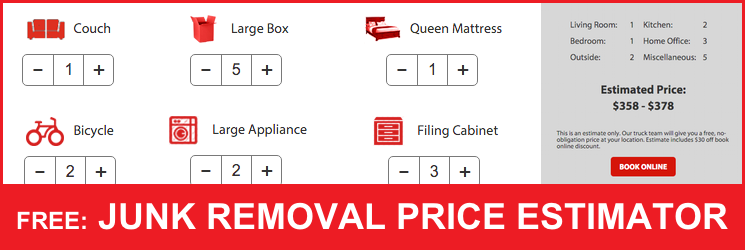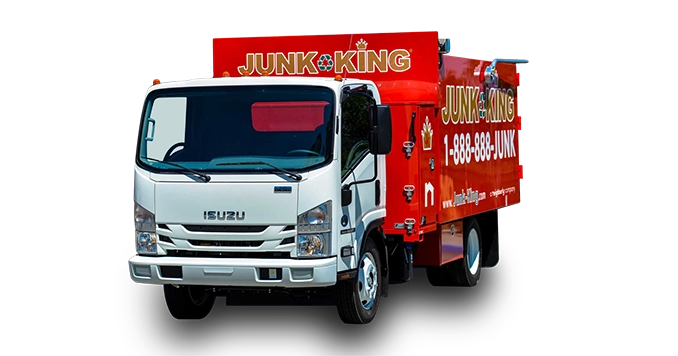
The further we get into the 21st century, the more we realize just how important recycling really is. Taking care of our planet is a huge priority these days, and at Junk King San Francisco, we feel that environmental considerations should be a part of any business plan moving forward. That's why we pride ourselves on being the most ecologically friendly company in the junk removal industry. Everything we pick up, whether it's construction debris, furniture, or just plain old trash, gets taken to one of our sorting centers to be recycled. If any piece of your junk can be reused, we make sure it will be. Recycling doesn't just end with junk removal, however. It's also important that we all do our part, not just as a business, but also as individuals. San Francisco is one of the most progressive cities in North America, and that extends to recycling as well. Here are a few guidelines you can use to make sure you're taking full advantage of the bay area's robust recycling program.
Reusable vs. Single-use Items - Which is Better for the Environment?
When it comes to reusable items vs. single-use items, it seems like the answer should be pretty clear. However, some recent studies have found surprising results. While reusable versions of items like straws, sandwich bags, and coffee cups have become popular as a way to avoid the ecological damage from single-use plastics, the overall effects on the environment aren't always positive. Some reusable objects never reach a break-even point because of the energy and materials used to make them. The upshot of all this is that you should buy reusable items when you can, but make sure to compare materials as well. Consuming items made of sustainable materials is just as important as cutting down on overall consumption when it comes to protecting the environment. There is one significant outlier here, however - e-waste. Because of the rare and valuable ores used in many common household electronics, it's almost always better to reuse them if you can. Once you've finished with your electronics, make sure to take them to a recycling center or have an environmentally-friendly junk removal service like Junk King take care of them for you.
A Brief History of San Francisco's Trash and Recycling Systems
Today San Francisco has the highest recycling rates of any city in the US, but that wasn't always the case. Recycling services in San Francisco were fairly weak through the first half of the 20th century, with the advent of packing trucks driving the recycling rates to their lowest point in the 1950s. However, starting in the 1970s and early '80s, the city began to focus more on recycling. The creation of the "Fantastic Three" colored bin system in 1999 and the 2009 Mandatory Composting and Recycling Ordinance were major landmarks in recycling, and the city now has a recycling diversion rate of 80%. We're proud to add Junk King's recycling program to the list of successful waste management efforts in the city.
How to Reduce Waste by Following a Few Simple Rules
Besides following the recycling rules, there are plenty of other simple things you can do to reduce the waste generated by your lifestyle. You've probably heard this slogan before, but the best place to start is by following the three R's - Reduce, Reuse, Recycle. The first R has to do with cutting down on the items you buy and consume. Try to replace frequent disposable purchases like plastic bags with reusable options, and keep track of how much packaging trash your purchases are generating. You don't have to live like a monk, but being mindful about your consumption is a great first step. The second R means replacing disposable purchases with reusable ones as often as possible, but it can also mean considering where you make new purchases as well. Buy used objects instead of new ones, for example, or find clothes at a thrift shop instead of ordering them online. You can also repurpose old or broken items through DIY projects. The third R obviously means following the recycling guidelines set out by the city of San Francisco, but there are other ways to recycle trash. At Junk King San Francisco, we recycle everything we possibly can, including some objects like broken mirrors and scrap metal that the city won't take. For Junk King, recycling has been a priority since day one, so we make sure to find the right home for every piece of junk we bring in.
What Goes Where?
There are relatively few limits on recycling in San Francisco, but there are certain things that have to go into the landfill. Most paper and cardboard belong in the green bin, including newspaper, cardboard boxes, and egg cartons. Shredded paper can also be recycled, but should be put in sealed paper bags first. However, metallic-backed paper, like wrapping paper, has to go to the landfill, along with wood and waxed cardboard. Any cardboard with food on it, like pizza boxes, should go in the compost bin. Any rigid or hard plastics can also be recycled, including plastic bottles, buckets, CD and DVD cases, toys, and food containers. Styrofoam peanuts can also be recycled but should be taken directly to a recycling center rather than just tossed in the bin. Plastic bags, wrappers, or film belongs in the landfill, and any plastic labeled "compostable" can go in the compost bin. Most metals can be recycled as well, like aluminum cans and foil, tin cans, and paint cans. Scrap metal can't be recycled through the city, although Junk King San Francisco will both haul and recycle it at your convenience. Finally, any glass bottles and jars can also go in the recycling bin. Mirrors and windows, however, will have to go into the trash or can be hauled away by a junk removal company like Junk King. It can be a little tricky sometimes to keep all these categories straight, but it's worth making the effort for the good of the environment. Of course, if you need to have trash or materials hauled away by Junk King, we'll do all the sorting for you in one of our sorting centers in the city.
What About Composting?
Composting is the other big piece of the recycling puzzle. For the most part, any food is going to end up in the blue composting bin, although there are a few guidelines. Food, food-soiled paper, and vegetation all belong in the composting bin, along with cotton balls, pet fur, compostable plastics, and small pieces of wood or crates. Cat litter, textiles, cooking oil, corks, diapers, dirt, rocks, flower pots, liquids, and plywood won't be accepted.
What Does Junk King San Francisco Take?
If you have enough trash that you need to bring in a junk removal service like Junk King, the limitations are going to be a lot shorter. In fact, Junk King will take anything and everything you have short of toxic waste. That means trash, debris from construction, raw materials, and even large objects like furniture, appliances, or mattresses. Junk King also takes electronics, including televisions, computers, and monitors. We'll even haul away yard waste like branches, leaves, and dirt. If you're looking for a junk removal company that shares your values on environmental protection, then Junk King San Francisco is the business for you. Despite taking in mainly trash and other objects that recycling centers won't take, we still manage to recycle or donate well over half of what we haul away. This includes items like mattresses or refrigerators that most municipalities just toss in the landfill. When Junk King was founded all the way back in 2005, it was envisioned as the first recycling-based junk removal business in the country, and we've stayed true to that vision to this day.
How to Get Started Recycling with Junk King San Francisco
If you're interested in getting a free estimate from Junk King San Francisco, feel free to give us a call, or set up an appointment online. We offer both self-service dumpster rental and full-service junk removal, and we pride ourselves on being the most affordable junk removal company in the industry. We're also proud of our customer service, which has been consistently ranked #1 nationwide among junk removal businesses.


